The Ag Industry Needs Help. A Minnesota College is Hoping to Provide the Education
The ag industry is begging for people with an interest in agriculture to join the team. Central Lakes College in Staples, Minnesota, is hoping to provide the education piece of the puzzle.
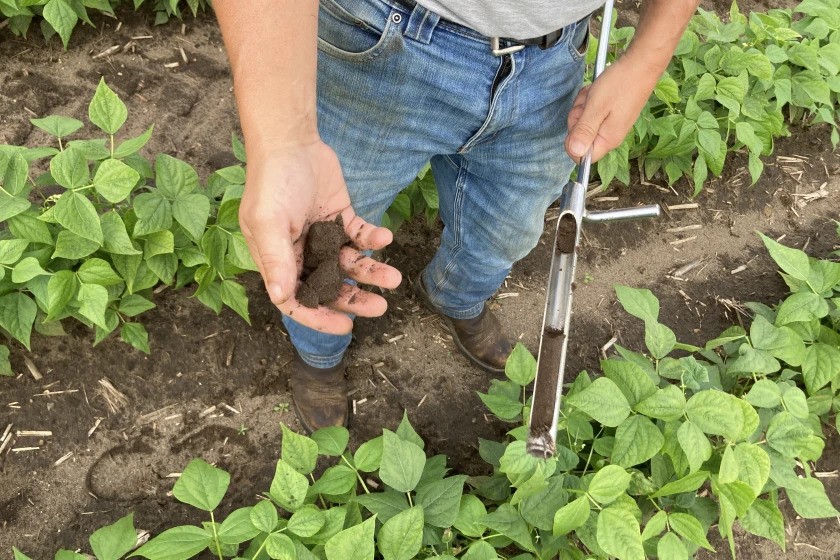
October 23, 2023
STAPLES, Minn. — The idea of bringing a Precision Food Production diploma to Central Lakes College in Staples, was one born from pleadings from the agribusiness industry.
That program started in the fall of 2023 with a hope to help fill significant and emergent needs in agriculture well beyond the regions of central Minnesota, according to CLC staff.
Taylor Thompson, ag technician/research scientist at CLC, performs research at the 2,000 acre CLC Ag & Energy Center research farm, where they grow dark red kidney beans, corn, soybeans and barley. They have test plots for seed companies to test their products in the sandy soils of the farm. They research moisture and nutrients across the farm, and they share that research with the impacted industries.
Meanwhile, implement companies keep the latest tractor equipment on hand for use in order for the latest precision ag technologies to be at work within the research. It’s a place filled with ag education opportunities, and one in need of students to start learning about it.
Thompson said he really sees the college’s farm working hand-in-hand with the new educational programming to give students a cutting-edge look at where farming is today.
“Students would get real hands on with the latest and greatest technology on the farm,” Thompson said. “You’re not even a half mile away from campus. So we really see the farm working into it a lot and them being over here, more hands on then in-classroom work.”
Thompson said the industry demand for this type of education has been hard to ignore.
“When you have industry, you know, leaving stuff sit, and they can’t find a body to run a sprayer or anything like that, that’s huge,” he said.
They’ve heard from co-ops around the region that can’t find people to fill their jobs.
“Staff in general,” according to farm manager Todd Pollema. He hears from ag businesses often that struggle to bring in employees, including a local implement dealer.
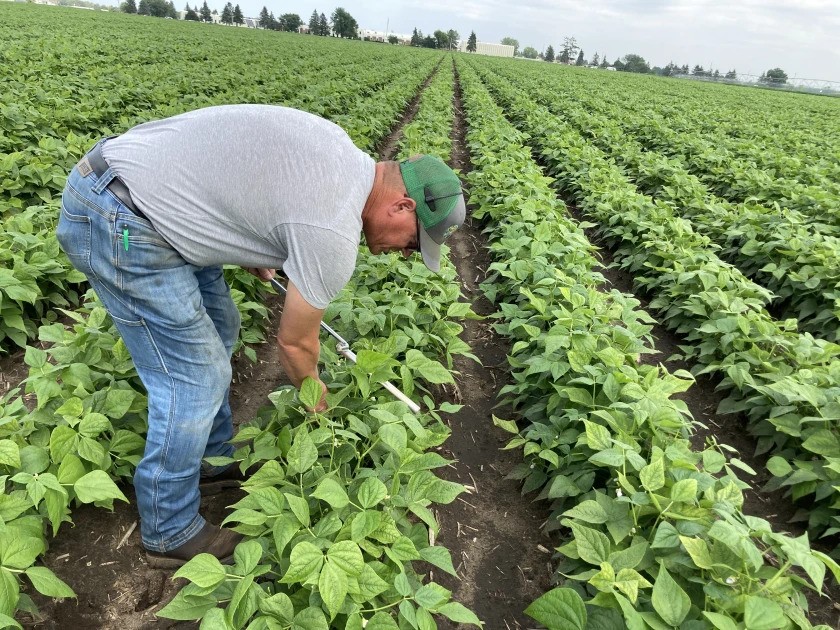
Without someone willing to run a sprayer or offer agronomy advice in a short window of time, it hurts the agronomy business; it hurts the farmer who is at risk of lost production; and the hurt continues through the whole food production process.
The need to educate
Pollema gave an example of how the college has been in cooperation with Natural Resources Conservation Service to provide training to new NRCS field technicians in order to help them learn skills important to their jobs. After one day of learning, the field techs — those who are to go out and advise the farming community — were surveyed. Among that group, 17 did not know what hay was.
“Because there is such a disconnect, nobody comes off the farm anymore,” Pollema said.
That was an eye opener to the group, to realize that something that seemed commonplace to them was not a part of these ag professionals’ vocabulary. It was a sign of the separation that some generations have from agriculture. It solidified, once again, the importance of their need to educate the future generations on food production.
Ag instructor for this new program is Nathan Wiese, who brings a background as a certified crop adviser and was recently employed with the East Otter Tail County Soil and Water Conservation District as an irrigation and nutrient management specialist. He also grew up farming and continues to farm with his family. He wrote the programming for the new diploma program. He said core classes include crop production, agronomics, soil science, water quality, nutrient management and in-field experience. He said students can expect to go on to work on a farm, start their own farm, work for an ag co-op, or even gain an understanding that can help them in ag banking or insurance work. All are areas he said have needs right now.
“Part of that demand is a labor shortage coming out of like COVID, but that’s been slowly building over the years,” Wiese said of the need to fill agriculture jobs.
He said it goes back into the 80s when people were getting out of ag during the farm crisis.
“Now that they are seeing there’s opportunities in agriculture with the new technologies that are coming out and the different things that go into it, we’ve got producers asking for it,” he said.
The education does more than just fill a present need. Students are learning skills that will advance new technologies on the farm meant to improve return on investment and be better on the environment.
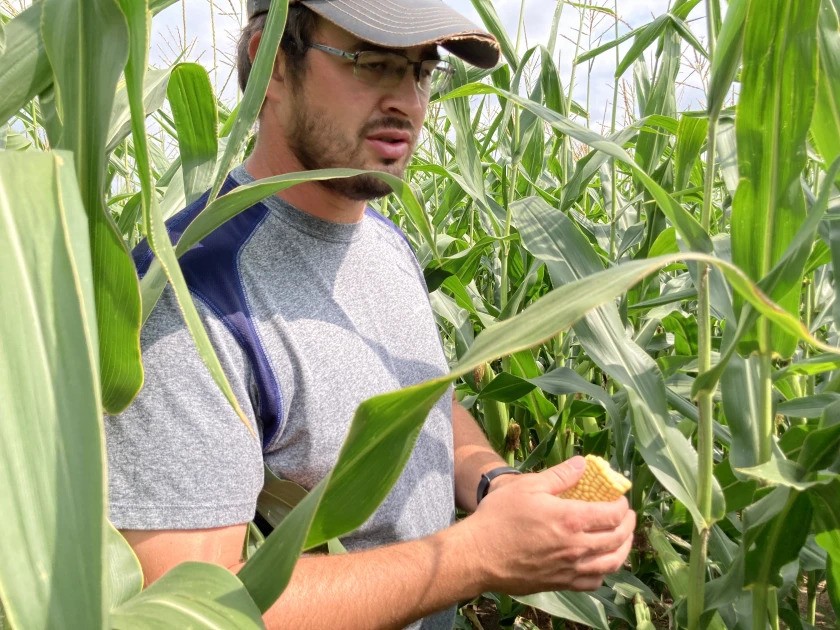
On a tour day planned for the new program, Wiese took an Agweek reporter out around the farm and showed off some of the things that students would learn about including how the farm’s variable rate irrigation technology works. It’s a piece of equipment not found in many fields, but one that is seen as the future of irrigation efficiency. It’s made possible by a Regional Conservation Partnership Program Project.
The farm is a unique place filled with test varieties including cash crops, grasses, apple orchards, grapes, berries, trees and the Living Legacy Garden s, a large garden filled with flowers, shrubs, vegetables and fruits that is utilized by Central Lakes College and the public. Wiese said combining the opportunities of the farm with this new coursework should be a great relationship.
“I think it’s a great opportunity to put those together, to put the farm, of the Central Lakes farm, and the program together to be able to build and be able to work together and be a benefit for both,” Wiese said.
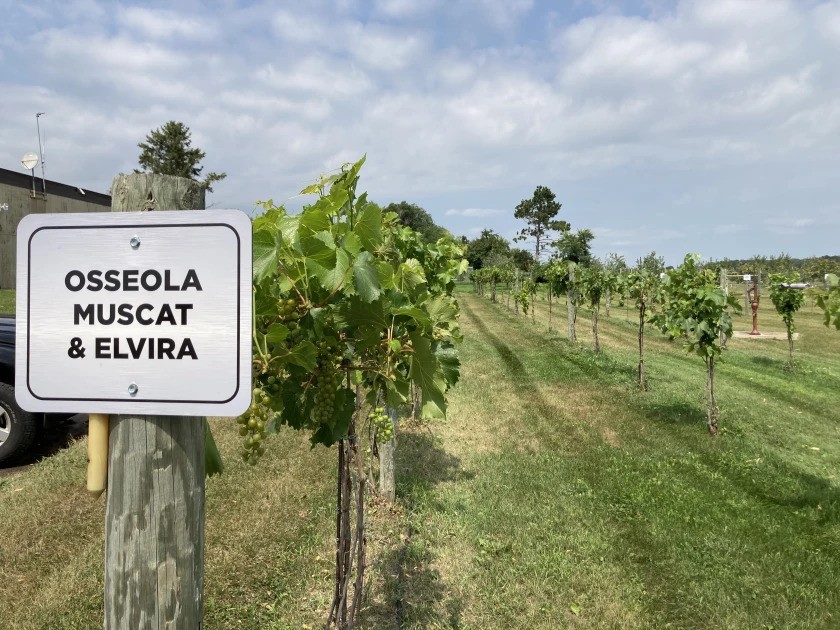
Part of the new curriculum includes coursework that helps students earn a CDL and commercial applicator license. That’s something that would allow students to enter a job relatively quickly, as that has become a major need for agronomy businesses lacking the labor.
Pollema has another hope that students in the program would have their own 100 acres of farmland from the college acreage that would be theirs to plan out from start to finish. It’s an idea being floated for second-year students.
If realized, the farm staff would do the physical labor of tillage, planting, irrigation and harvest, but it would be the student’s work to choose the inputs, pick the variety, monitor soil moisture and watering, and determine the planting and harvest times based on what they learned in their first year.
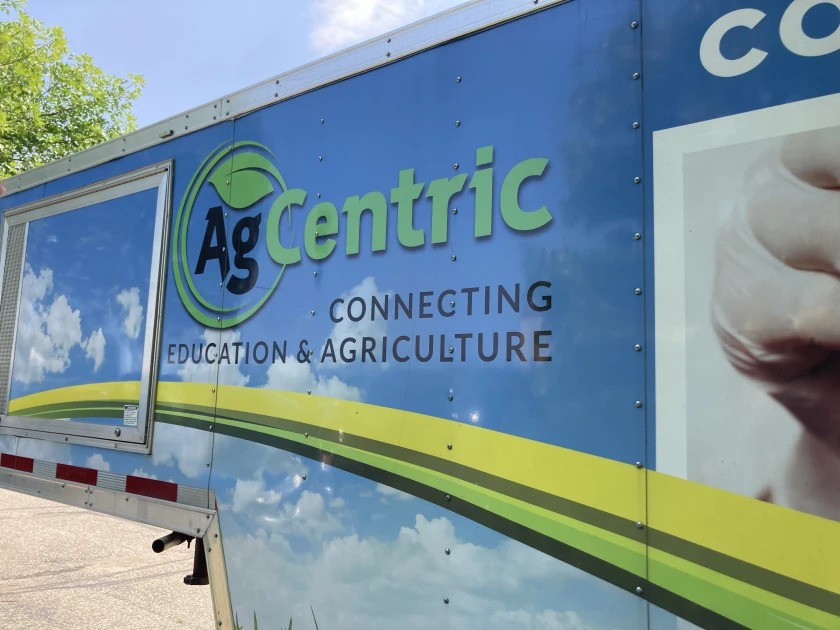
“I think that would be really cool, because a lot of these colleges, they don’t even have 100 acres total,” Pollema said.
Wiese commented that he learned his skills at NDSU as well as from growing up on and continuing to farm in central Minnesota. Thompson learned much of his ag research skills at Lake Region State College in Devils Lake, North Dakota. They agree that those, as well as others, have their own unique offerings. But what sets this college apart is the 2,000 acre playground students can immerse themselves in before they move onto a career in agriculture. That acreage is filled with connections to the ag industry, including implement dealers, as well as a large assortment of seed and input companies — many that are looking for workers.
“You know if these kids show an interest in something, heck, we might have someone we can steer them toward,” Pollema said. “All this stuff helps with job placement.”
The group says that anyone with an interest in agriculture can benefit from the class offerings.
“The employment opportunities in ag are just off the charts,” Pollema said.
As technology continues to advance at break-neck speed, the group knows that continuing education is key for the future generations to be successful in ag.
To find out more information about the Precision Food Production classes, visit: www.clcmn.edu/precision-food-production-diploma/ .
